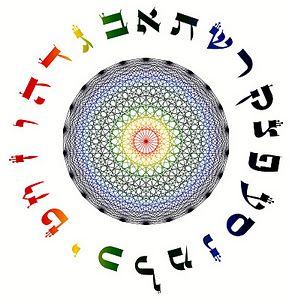Ariel Ben Avraham – Ecclesiastes: The illusion of vanity and the reality of love (XXX)
This story illustrates in its allegories the central message of Kohelet. We can understand the city as our consciousness, frequently besieged by the power that negative traits and trends can have over us, all coming from ego’s driving force which is represented by the invading king. The deliverer of the city is goodness that is its natural ruler, for both belong to each other.
Interestingly, Kohelet presents “poor” and “wise” as complementing traits, understanding the former as the humbleness inherent in goodness. Our sages consider humbleness an intellectual quality, necessary to acquire wisdom as the means to grasp God’s Torah for humankind in general, and Israel in particular as the chosen inheritor to disseminate such instruction.
The main question in the story is how the poor wise man delivered the city from the king and his army. The answer is persuasion. The story makes evident that the poor wise man didn’t have an army or weapons to defeat the king, so the power of wisdom causes the deliverance.
Wisdom usually unfolds by contrasting itself from ignorance in order to bring it back to understanding, as the light dissipates darkness and turn it into part of the light.
Thus we understand that darkness is the previous condition that makes sense to light. The same works for good and evil, for the latter is the reason for the former to exist.
The purpose of goodness is to transform evil by extracting the goodness concealed in it, for evil can’t exist without goodness.
Once we are exposed to the effects and consequences of the negative traits and trends of ego’s fantasies and illusions, we come to the realization that evil is not a choice but a reference to choose goodness. In this awareness we realize that the “persuasion” of the poor wise man is the educational process that takes modifying or transforming the negative traits and trends that submit our consciousness to their destroying effects and consequences.
The story tells us that ultimately the poor wise man was forgotten, ignored and even despised. Such is the fate of goodness in the playing ground of ego’s fantasies and illusions.
As soon as we realize that coming back to goodness brings us the long yearned freedom, and return momentarily to its ways and attributes, we go back to the addictive nature of negative trends and trends.
Hence Kohelet concludes that living in such vicious circle is vanity and vexation of the spirit that sustains life.
- Ariel Ben Avraham
- Kochav Yaakov, Safed, northern Galilee, Israel
- Ariel Ben Avraham (f. Zapata) was born in Cartagena, Colombia in 1958. After studying Cultural Anthropology in Bogotá moved to Chicago in 1984 where he worked as a television writer, reporter and producer for 20 years. In the 1990’s he produced video documentaries related to art, music, history and culture such as “Latin American Trails: Guatemala” distributed by Facets.org. Most of his life he studied ancient spiritual traditions and mysticism of major religions, understanding the mystic experience as the individual means to connect with the Creator of all. Since 2004 he studies and writes about Jewish mysticism and spirituality mainly derived from the Chassidic tradition, and the practical philosophy of the teachings of Jewish mystic sages. The book “God’s Love” is the compilation of many years studying and learning Jewish mysticism. The messages of his book are part of the content, exercises and processes of a series of seminars, lectures and retreats that he facilitates in Israel.









